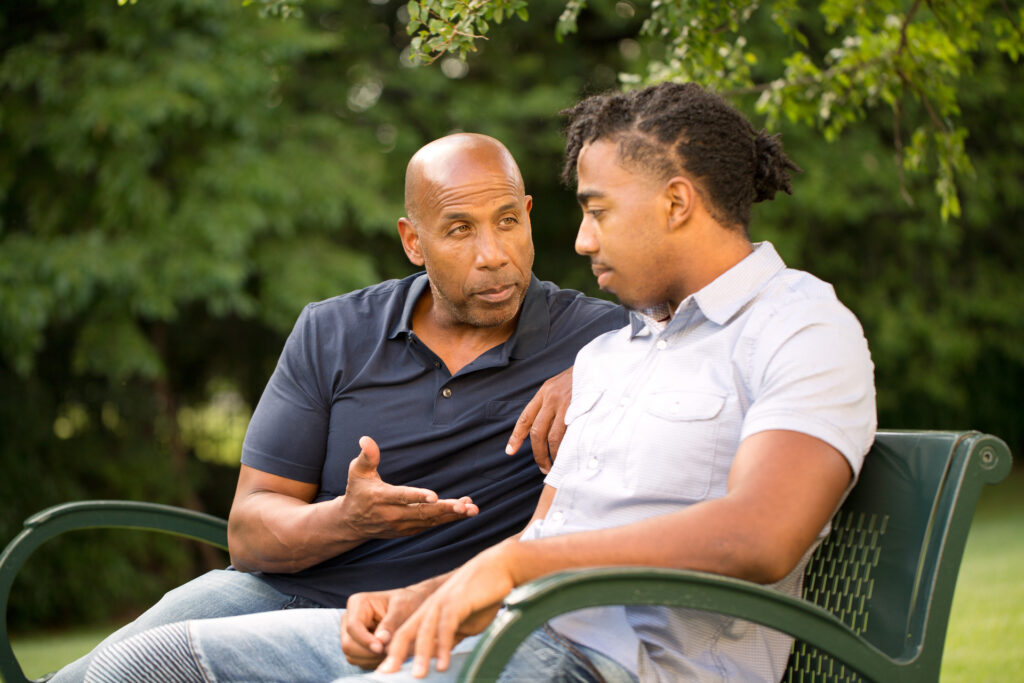When we talk about the harms of addiction, it is important to consider harms that go beyond the addicted individual. We’ve written in the past about how addiction affects families, including how families may cope with a loved one’s addiction.
Addiction is not just something that affects the individual. The use and abuse of addictive substances in a family context can lead to the development of unhealthy dynamics in families where addiction is present.
One term that routinely comes up when talking about unhealthy dynamics in family relationships is codependency. But what is codependency, and is it a useful term in addictions treatment?
How is Codependency Defined?
According to Mental Health America—a U.S. non-profit dedicated to addressing mental health issues and promoting mental wellness—codependency is “an emotional and behavioural condition that affects an individual’s ability to have a healthy, mutually satisfying relationship.” It is also referred to as relationship addiction. Those who are codependent are said to “form or maintain relationships that are one-sided, emotionally destructive and/or abusive.”
Codependency is based on the idea that a family member will depend on emotional validation from helping another. Rather than honouring their own self-worth. In the context of addiction, codependency is said to look like relationships that gradually become more dysfunctional over time. This often leads to low self-esteem and even a loss of one’s identity. The idea of codependency is also strongly tied into the concept of enabling an addiction, which we won’t touch on here.

Is Codependency a Useful Term?
Codependency is a concept that aims to explain relationships between people. However, it is important to note that no medical consensus exists on its definition. What’s more, the term has become a bit of a buzzword in the self-help psychology genre. It can easily be applied to many different behaviours and dynamics.
Some clinicians feel that this concept may even lead to more harm than good. Labelling people “codependent” can lead to shame and confusion. Rather than helping to bring insight into relationships, especially where trauma is involved.
According to Kristi Pikiewicz, Ph.D., managing editor of the American Psychological Association’s Division of Psychotherapy DIVISION/Review, the time has come to retire this problematic and ambiguous term.
In this author’s view, codependency can act as a label that overshadows the traumas that people have experienced. It puts a label of blame and shame on them. Not surprisingly, she says, people tend not to respond well to this label, and often the relationship between therapist and patient is compromised.
Is There a Better Way to Understand Codependency?
Ann Smith is the author of the books Grandchildren of Alcoholics and Overcoming Perfectionism. She is often referred to as an expert in the concept of codependency. Though she expresses her concerns about this vague and ambiguous term in psychology.
“The truth is that what had been labelled in the past as codependency is actually human beings doing what comes naturally—loving.”
Smith tells the story of Lynn*, a woman who was trying her hardest to support her son while struggling with mental health issues and addiction. This woman was routinely labelled as codependent through her conversations and social interactions. To the point where she introduced herself to Smith as “hopelessly codependent” in the context of her relationship with her son.
So, what was Lynn doing that was so terrible? Instead of living her own life, Lynn spent her time following her son around with Narcan trying to keep him from dying. In the author’s words, Lynn was guilty of two things: “Loving her son, and being terrified that she might lose him.”

A Normal Reaction to a Difficult Situation
As we’ve said before, addiction is something that affects not just individuals; it affects families. At Sunshine Coast Health Centre, we regularly see parents and spouses struggling with how to best support their loved ones.
If there’s one piece of wisdom we can impart on those families, it’s to not blame yourself. Addiction is difficult for everyone, and from our experience, families do everything they can, with the tools that they have, to support their loved ones. We don’t call this codependency, we call this love, struggle, and exhaustion.
At Sunshine Coast Health Centre and the Georgia Strait Women’s Clinic, we support individuals in treatment with science-based holistic approaches. This also means supporting families and helping individuals develop the tools to understand addiction.



